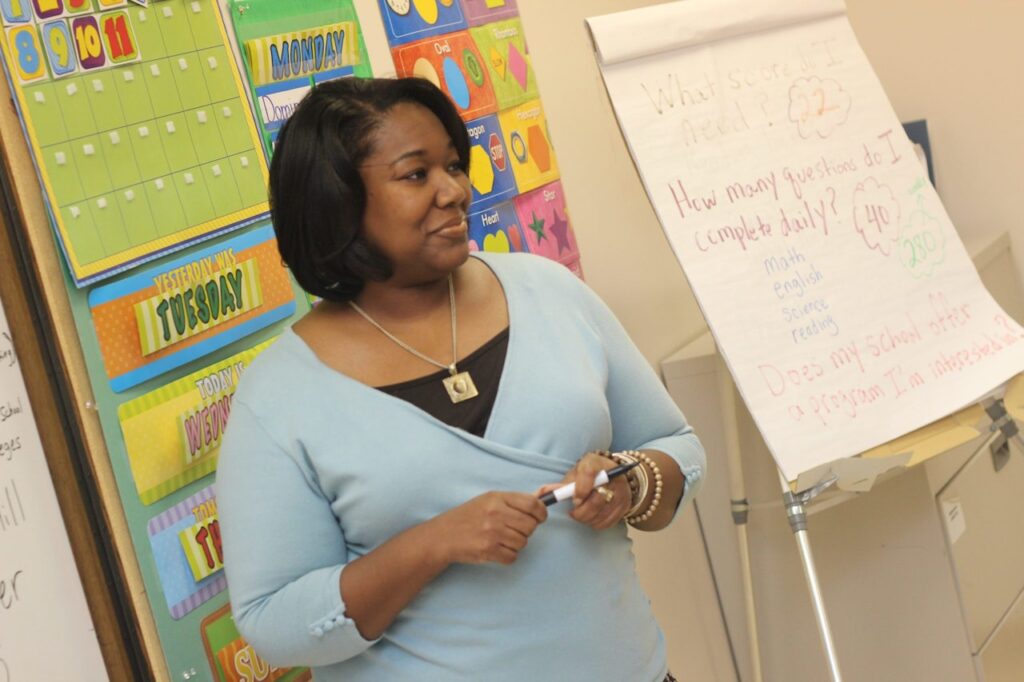Follow the teacher’s lesson plan. Form relationships with students. When all else fails, use your acting skills.
I am a non-licensed central office district employee. There are times over the past years when I have been required to substitute in schools.
What is the best way to establish relationships with the students and have a productive/low disruption day? — Short-term Bond
Short-term Bond,
So many of our students have visceral reactions to teacher absences.
I have seen students, upon hearing of an absence, leap up with their hands in the air as if they were celebrating victory. I have also seen students drop their heads to their desks and wonder how they will make it through the day without this person they depend on.
Teachers are much more than adults in the classroom who disseminate information. We are a lifeline.
We are also human who sometimes desperately need to be absent and have reliable guest teachers who can step up and support our learners. Short-term Bond, I imagine the change in your daily schedule is more than a simple interruption.
Going into a classroom of diverse learners can be intimidating even for advanced practitioners. You are a valuable part of the team and your question about being comfortable in the classroom is one guest teachers face daily.
How to feel comfortable and build trust with students quickly
– Follow the lesson plans. Teachers have strict schedules. We have to follow our scope and sequence and there is often very little wiggle room. In many cases due to common formative assessments, teacher groups must be on the same page in the textbook on the same day. If you follow the lesson plan, it will help the teacher and the students maintain a sense of normalcy.
This won’t always be possible, but when you are given advance notice that you will be filling in for an absent teacher, request the lesson plans be sent to you or shared in a common space.
– Establish relationships with students. Look for long-term guest teacher spots or opportunities to return to classrooms you’ve spent time in. When you begin to recognize students and remember their names, it helps to establish your credibility. Learn something about their families, their hobbies, and their favorite things. Share your story with them. They will be interested in you.
- With younger students, I like the idea of Would You Rather games. It can be as simple as would you rather eat peanut butter or hop on one foot? Would you rather eat ice cream or frog legs?
- For middle-grade students, Heads up 7 up is always a winner. Use it near the end of class as a reward for on-task behaviors.
- For high school students, 2 Truths and a Lie is a great game. Give students time to write two truths and one lie about themselves. The class has to guess which answer is the lie.
– Find out what the classroom consequences are for student misbehavior. Most teachers post their rules as well as what happens if rules are broken. For example, you should know if you’re able to message parents directly or whether the staff prefers you leave a note for the teacher.
– When you can, reward students. Find ways to reinforce appropriate behavior and reward those who are performing well. Stickers are a good option. I prefer Jolly Ranchers.
– Tap into your acting skills. I was once a long-term substitute teacher for a chemistry class (I am an English teacher). I learned more from YouTube than I ever thought possible. I also acted my way through each day imitating what I saw the professionals teach.
I wore ‘science’ clothes like a lab jacket and used goggles to make my hairstyle pop. I read the teacher’s notes and met with other instructors who provided me packets of information to absorb. The more you know about a subject, the better. The more you do not know, the more you have to act your way through.
Finally, remember, try not to alienate anyone and be welcoming — this is what students will remember most even if you’re only with them for one day.
Do your best to make that one day better.

